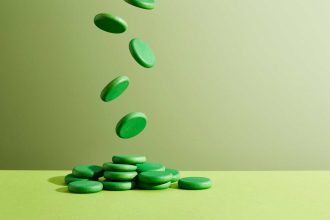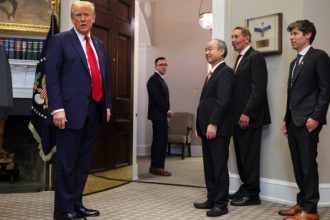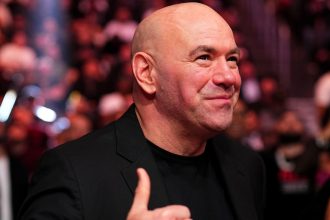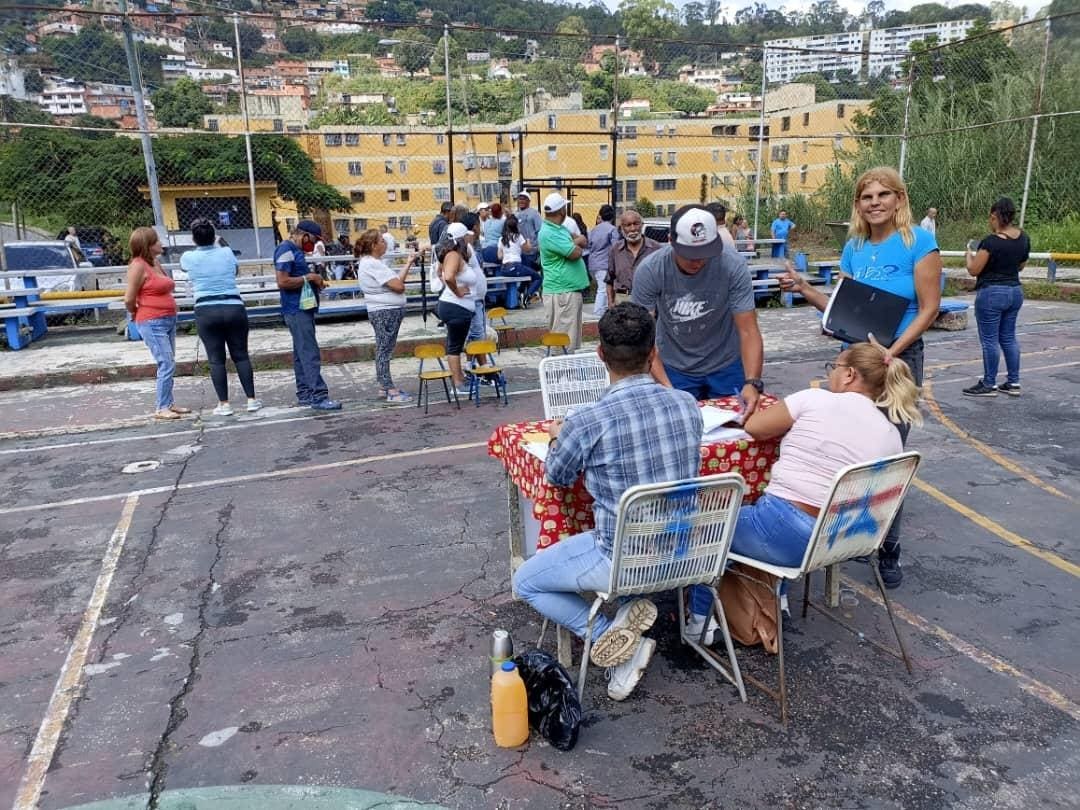In a chronicle of a vote foretold, opposition frontrunner Maria Corina Machado won by a landslide in Venezuela’s primaries on Sunday. The key question was not, however, whether she was going to win. Without credible competitors, Machado’s objective was to flex electoral muscles against the government, as she is barred from public office.
The day of the vote was marked by pictures of long queues waiting to vote in various cities across Venezuela, and by the few resources employed. There have been varying claims of turnout numbers, without independent observers. As of Monday morning, official results have not been released beyond a preliminary tally: Machado takes 93% of the total.
The public office ban was imposed by the comptroller general, who argued that she had violated the constitution by calling for a military invasion and economic sanctions on Venezuela. She did so on multiple occasions during the dire economic and humanitarian crisis the country has suffered from in recent years. The political ban has been a point of contention in negotiations between Washington DC, Caracas, and the main opposition parties.
The agreements led to electoral guarantees for the 2024 presidential race, and the suspension of some sanctions by the US. Most importantly, they have opened up the oil and gas sector, which is Venezuela’s economic engine. However, the government led by President Nicolás Maduro shows no signs of backing down. If the standoff continues, we could see a snapback. Nonetheless, the lead US negotiator, Juan González said in a podcast at Americas Quarterly that he does not expect all sanctions to be reimposed in such a scenario.
Machado’s primaries
It could be that the vote has served to galvanise much of the disarrayed Venezuelan opposition around one candidate in a civil vote; it is the result of a year-long campaign. However, it remains to be seen whether the ban will be lifted or an alternative candidate will be presented in 2024. Beyond that, it is not clear if the large traditional opposition parties will accept Machado as their leader. Until now, they have sidelined her in negotiations with the White House and Miraflores—Venezuela’s presidential palace.
The results are close to the expectation. Though polling data showed wildly different results, virtually all found that Machado was bound to win by a large margin. She became the uncontested winner especially as two opposition heavy hitters, Henrique Capriles and Manuel Rosales, pulled out of the race. Outsider and comedian Benjamín Rausseo had also exited the primaries earlier, to run as an independent in 2024.
The Venezuelan government also did not interfere in the vote—it allowed the opposition to carry out primaries and a show referendum in 2017. Still, some in the opposition and the US have hailed this as a success from the Barbados negotiations. There were only minor incidents according to the primaries’ organisers, “no more than 10 across the country, and voting took place as planned.”
The crucial matter is how Machado and her supporters will be able to spin the narrative over the vote. As her main competitors pulled out and National Electoral Council (CNE) assistance was refused, this has been Machado’s own event. The vote was rolled out through her NGO Súmate, and most volunteers associated with her Vente Venezuela party. Some opposition candidates also accused Machado of taking control over the voting infrastructure through her organisation Súmate and paying for polls.
Machado’s Súmate has a history of underhanded political tactics. Back in 2004, Súmate called fraud in a recall referendum on Hugo Chávez. The Organisation of American States (OAS), which later has been very critical of Venezuela’s government, nonetheless found no evidence of fraud, neither did the Carter Center and the rest of the international observers. Yet Machado and Súmate were able to spin the narrative enough that the opposition pulled out of legislative elections the next year.
One fear is that this primary, dominated by Machado’s supporters, could only serve as an act of vindication. The hardline opposition could end up taking the path of grandstanding once again, jeopardising the negotiated process between Caracas, Washington DC, and the opposition.
In 2005, 2018, and 2020 they refused to run in votes with accusations of fraud. The result were a landslide wins for Hugo Chávez and later Nicolás Maduro by not competing—akin to Machado’s win on Sunday.
No challengers, but many challenges
Without access to the state’s voting infrastructure—besides the electoral registry—carrying out this vote was no small feat. In the runup, there had been fears that it would not have enough resources to field voting booths across the country. The lack of resources was one of the reasons why Benjamín Rausseo pulled out earlier in the year, arguing that especially the poorest voters would not be able to reach many polling stations.
There were also claims that voting stations were being moved even on the eve of the vote, due to pressure from colectivos—pro-government neighbourhood organisations. Some also found that internet connectivity fell during the day. In the morning of Sunday, the primaries chief organiser said that 70% of polling stations were able to open, out of 3,010 planned, and others set up later in the day.
The vote was also marked by long queues of voters, mostly due to few polling stations being available. Young people were also largely absent, with images of older generations overwhelming reports. At the time of writing, it is estimated that between 990,000 to 2.3 million people voted. Most projections point to a 6-8% turnout, from almost 21 million registered voters. In the last opposition primary in 2012, 3 million voted.
Testament to the imprecision of polling data, and without independent observers, the only proof to show numbers has consisted of videos of long queues. During campaigning, candidates used the exact same tactic: showing long columns of people marching or driving behind their candidate.
Ultimately, the outcome of these primaries is not about who won, but how Machado will win. Will the opposition’s established leaders submit to the new leader or will they run against her? Manuel Rosales, the governor of Zulia—an opposition stronghold—has left the door open; Benjamín Rausseo is already planning on campaigning.
Immediately there is one high-risk aspect: Venezuela’s overseas assets in the US are in the hands of opposition parties. They include the refining giant Citgo. Their legitimacy stems from a national assembly election in 2015, and their credibility has dwindled especially since the failed “interim government” policy. Could the primaries lead to a change in this situation? Could Machado take charge of them, or will this be the time when they are handed back to the government in Caracas?
Read the full article here





